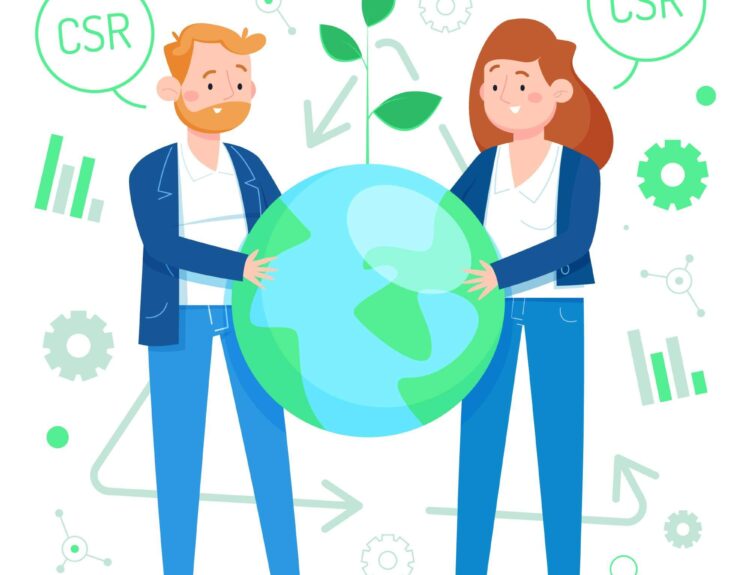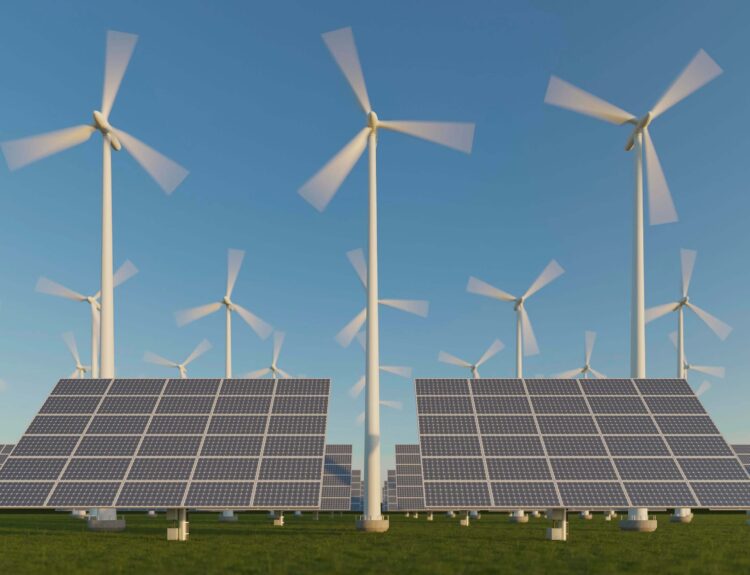One of the most significant global issues of the 21st century is achieving sustainable development and reducing inequalities worldwide. The Sustainable Development Goals (SDGs) are a set of universal objectives established by the United Nations to accomplish this aim. Adopted in 2015, these goals aim to eradicate poverty, protect the planet, and ensure prosperity for all by 2030. This article will explore the importance of the SDGs, the details of the goals, the challenges in achieving them, and possible solutions.
History of the Sustainable Development Goals
The Sustainable Development Goals are a continuation of the Millennium Development Goals (MDGs) adopted in 2000. The MDGs achieved significant progress in reducing poverty, ensuring educational equality, and improving healthcare by 2015. However, the MDGs focused primarily on developing countries and fell short in certain areas.
To address these shortcomings and establish a broader vision for sustainable development, the United Nations organized the Rio+20 Summit in 2012. At this summit, an agreement was reached to develop the SDGs. In 2015, during the United Nations General Assembly attended by 193 member countries, the SDGs consisting of 17 main goals and 169 targets were adopted.
Content of the Sustainable Development Goals
The SDGs encompass a broad range of 17 goals that cover social, economic, and environmental dimensions:
No Poverty: End poverty in all its forms everywhere.
Zero Hunger: End hunger, achieve food security, improve nutrition, and promote sustainable agriculture.
Good Health and Well-being: Ensure healthy lives and promote well-being for all at all ages.
Quality Education: Ensure inclusive and equitable quality education and promote lifelong learning opportunities for all.
Gender Equality: Achieve gender equality and empower all women and girls.
Clean Water and Sanitation: Ensure availability and sustainable management of water and sanitation for all.
Affordable and Clean Energy: Ensure access to affordable, reliable, sustainable, and modern energy for all.
Decent Work and Economic Growth: Promote sustained, inclusive, and sustainable economic growth, full and productive employment, and decent work for all.
Industry, Innovation, and Infrastructure: Build resilient infrastructure, promote inclusive and sustainable industrialization, and foster innovation.
Reduced Inequality: Reduce inequality within and among countries.
Sustainable Cities and Communities: Make cities and human settlements inclusive, safe, resilient, and sustainable.
Responsible Consumption and Production: Ensure sustainable consumption and production patterns.
Climate Action: Take urgent action to combat climate change and its impacts.
Life Below Water: Conserve and sustainably use the oceans, seas, and marine resources.
Life on Land: Protect, restore, and promote sustainable use of terrestrial ecosystems, manage forests sustainably, combat desertification, halt and reverse land degradation, and halt biodiversity loss.
Peace, Justice, and Strong Institutions: Promote peaceful and inclusive societies for sustainable development, provide access to justice for all, and build effective, accountable, and inclusive institutions at all levels.
Partnerships for the Goals: Strengthen the means of implementation and revitalize the global partnership for sustainable development.
Challenges in Achieving the SDGs
Achieving the SDGs requires overcoming a range of challenges, including financing, political will, institutional capacity, technological advancements, and data monitoring mechanisms.
Financing: Securing the necessary financing for the SDGs is a major issue for both developed and developing countries. Increasing investments from both public and private sectors is essential. Effective direction and utilization of international aid are also crucial.
Political Will: The success of the SDGs depends on the commitment of governments and leaders to these goals. Policymakers need to prioritize long-term and sustainable development.
Institutional Capacity: Implementing the SDGs requires strong and effective institutions. This involves capacity building in public administration, local governments, and civil society organizations.
Technological Advancements: The correct and effective use of technology plays a critical role in the success of the SDGs. Innovative solutions can increase efficiency and ensure more sustainable use of resources.
Data Monitoring and Evaluation: Reliable and up-to-date data are needed to monitor and evaluate the progress of the SDGs. This data plays a crucial role in decision-making processes and ensures accountability.
Solutions and Recommendations
The following strategies and policies can be recommended to achieve the SDGs:
Multi-Stakeholder Partnerships: Strong partnerships should be established between governments, the private sector, civil society organizations, and international organizations. These partnerships can ensure more efficient use of resources and the development of innovative solutions.
Sustainable Financing Models: Sustainable financing instruments such as green bonds, social impact investments, and development banks should be encouraged. This can help secure the financial resources necessary to achieve the SDGs.
Education and Awareness: Education and awareness about sustainable development should be increased. This ensures the awareness and active participation of individuals and communities.
Innovative Technologies: The development and dissemination of innovative and sustainable technologies should be supported. This can make a significant difference, especially in critical areas such as energy, water management, and agriculture.
Sustainable Development Goals of European Countries
European countries are taking significant steps towards achieving the Sustainable Development Goals (SDGs) and have developed various strategies to this end. The European Union (EU) and its member states have adopted and integrated these goals at both national and international levels. Below are some key aspects of European countries’ efforts towards the SDGs:
- No Poverty
European countries are strengthening their social security systems, implementing support programs for low-income families, and developing comprehensive social policies to reduce poverty. Various projects are being conducted to reduce income inequality and increase social inclusion. - Zero Hunger
The EU supports sustainable agricultural policies and works to ensure food security. The Common Agricultural Policy (CAP) aims to promote environmental sustainability, increase farmers’ incomes, and support rural development. - Good Health and Well-being
European countries are improving access to healthcare services, enhancing health systems, and developing comprehensive strategies for disease prevention. Digitalization in healthcare plays an important role in improving the quality of health services. - Quality Education
Europe is implementing various programs to ensure equal opportunities in education and increase access to quality education. Projects like Erasmus+ promote international cooperation in education and provide broader learning opportunities for young people. - Gender Equality
Gender equality is a priority for Europe. The EU implements various policies and programs to promote gender equality and increase women’s participation in economic and social life. - Clean Water and Sanitation
Europe implements comprehensive environmental policies to protect water resources and improve water quality. Legislation like the Water Framework Directive ensures the sustainable management of water resources in member states. - Affordable and Clean Energy
The EU promotes renewable energy sources and undertakes various initiatives to increase energy efficiency. The European Green Deal supports Europe’s goal of becoming a carbon-neutral continent and accelerates the energy transition. - Decent Work and Economic Growth
Europe implements various policies to promote sustainable economic growth and strengthen the labor market. The Social Protection and Social Inclusion Strategy aims to create quality jobs and improve workforce welfare. - Industry, Innovation, and Infrastructure
The EU runs research and innovation programs like Horizon Europe to promote innovation and develop sustainable infrastructure. Digital transformation strategies aim to develop innovative solutions in the industry and infrastructure sectors. - Reduced Inequality
Europe develops and implements various policies to reduce social and economic inequalities. Regional development funds and social inclusion programs aim to improve living conditions in disadvantaged areas. - Sustainable Cities and Communities
The EU implements smart city projects and urban transformation programs to increase the sustainability of cities. European cities lead in areas such as environmentally friendly transport systems, energy-efficient buildings, and increasing green spaces. - Responsible Consumption and Production
Europe promotes circular economy policies and undertakes various initiatives to increase resource efficiency. Waste management, recycling, and the promotion of sustainable consumption habits play an important role in this context. - Climate Action
The EU is strongly committed to the Paris Agreement and plays a leading role in the fight against climate change. The European Green Deal ensures the reduction of carbon emissions and the implementation of sustainable development policies. - Life Below Water
Europe implements various environmental policies to protect marine and ocean ecosystems. The Marine Strategy Framework Directive aims to ensure the sustainable management of seas and protect biodiversity. - Life on Land
The EU runs various programs to protect biodiversity, ensure the sustainable management of forests, and prevent land degradation. The Natura 2000 network ensures the protection of biodiversity and the sustainable management of natural habitats. - Peace, Justice, and Strong Institutions
Europe builds strong institutions to promote the rule of law, human rights, and democratic values. The EU implements various foreign policy and security strategies to ensure peace and security. - Partnerships for the Goals
Europe promotes global partnerships and cooperation to achieve the sustainable development goals. Through international development aid and technical cooperation programs, the EU supports the implementation of sustainable development goals worldwide.
European countries are taking significant steps in various fields to achieve the Sustainable Development Goals and implement comprehensive policies. These efforts aim to increase welfare at the national level and promote sustainable development globally. Europe’s determination to achieve these goals plays a crucial role in building a more sustainable and livable world.






